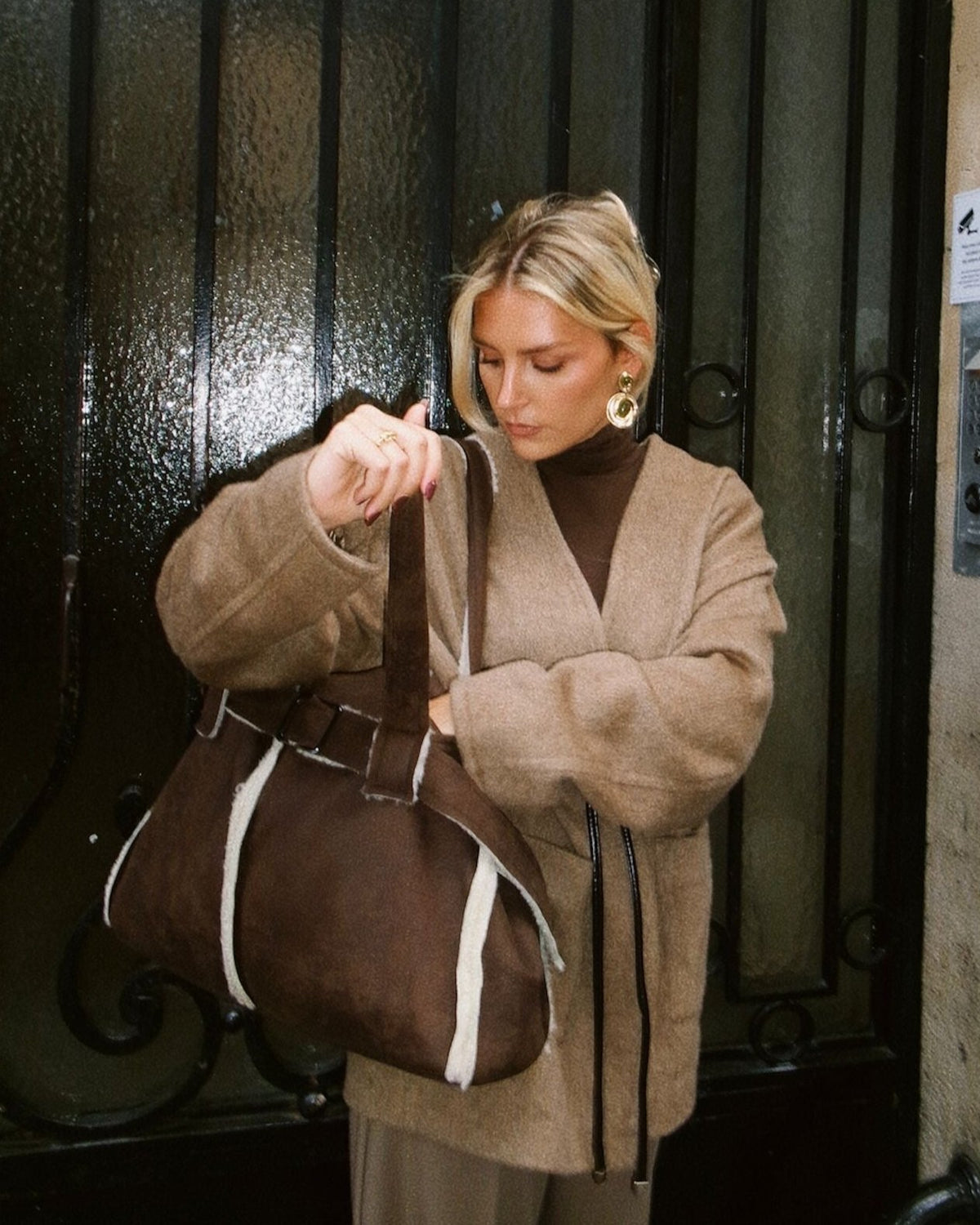

The question is always the same
"If you are a sustainable brand, why do you use deadstock, and why do some designs eve have fibers like polyester?"
Here's why:
Deadstock fabrics are leftover or surplus materials from other brands or manufacturers. By repurposing these fabrics, we prevent them from ending up in landfills or being incinerated, which would contribute to waste and environmental pollution.
No Additional Resource Demand : Deadstock fabric has already been produced, meaning no extra water, energy, or raw materials are used to create it.
Raising Awareness: can educate consumers and the industry about creative, resourceful ways to approach fashion production. It shows that sustainability isn’t only about the fiber content but also how existing materials are maximized to reduce waste.
SOME OF OUR BEST SELLERS MADE FROM DEADSTOCK FABRIC
IS POLYESTER THAT BAD?
Polyester isn't necessarily a "bad" quality fiber. And even though it was initially created as a responde to mass consumption and the challenges of a fast growing society, it has also evolved and become the main source of durability and resistance. So yes, it will obvious last longer than natural fibers, even though is not a sustainable one.
So, how are we using it in a sustainable way?
The thing is, this fabric has already been produced, meaning no extra water, energy, or raw materials. By reusing existing polyester fabrics instead of creating new ones, we save significant amounts of energy and reduces carbon emissions. Plus, there are sevreral types of polyester fibers, and many of them present high levels of comfort. When picking these fibers, we always make sure they feel and look good.
WHEN ETHICAL AND COOL COLIDE
How many of us are tired of seeing ethical fashion that just doesn’t align with our sense of style or meet the standards we expect? We’ve long been taught that you can either look stylish or be ethical – that to care about the planet and people meant compromising on aesthetics, and frankly, that’s a notion that just doesn’t work for many of us...
The truth is, sustainability is a complex journey that goes far beyond choosing certain fabrics. While fabric choices matter, there’s an even bigger picture to consider. Real sustainability means being thoughtful at every step, from sourcing to production to the way we treat workers and communities. Also, it means you will actually wear those styles for a long time. And if we’re talking about fabrics, doesn’t it make sense to use what already exists rather than producing more raw materials, even if they’re natural fibers like cotton or linen? Embracing what’s already out there – through deadstock, vintage, and repurposed materials – allows us to reduce waste and make the most of existing resources. In the end, sustainability is about making choices that reflect both our ethics and our sense of style, proving that fashion can be both beautiful and responsible.
So let's create designs you will actually wear and cherish for a long time, with timeless designs that look cool. Ones that were also made in top tier factories in our surrounding communities.

"Sustainability is a journey, not a destination"
HIGH QUALITY DEADSTOCK FABRICS
You can find absolutely everything in a deadstock warehouse, you just need a looooooot of time, and even more patience. And maybe do a weekly check up on the novelties. It's never certain what you will find, and sometimes we do come home disappointed. Other times we find perfect fabrics, for which we have no designs planned and end up saving them for later. However, you just know you need to get them. They won't show up again, and timing is everything.
BUT ETHICAL FASHION IS WAY MORE THEN FABRICS
... it encompasses a commitment to ethical production, fair pay, and respect for the rights and dignity of workers. True sustainability means creating a supply chain that values people as much as the planet, ensuring that every person involved in production works in safe conditions, is paid fairly, and is treated with respect. GUAJA. has been all about building relationships with our surrounding communities, supporting local economies, and fostering long-term partnerships that uplift rather than exploit. It’s about accountability at every step – from sourcing materials to the final stitches – and understanding that how we produce is just as critical as what we produce. In this way, sustainable fashion is not only about environmental impact but about embracing a responsibility to positively impact lives and respect the rights and well-being of everyone involved.

We are very proud to produce locally and couldn't be happier with the people we found along this way who were happy to help us and believed in us since day one.










